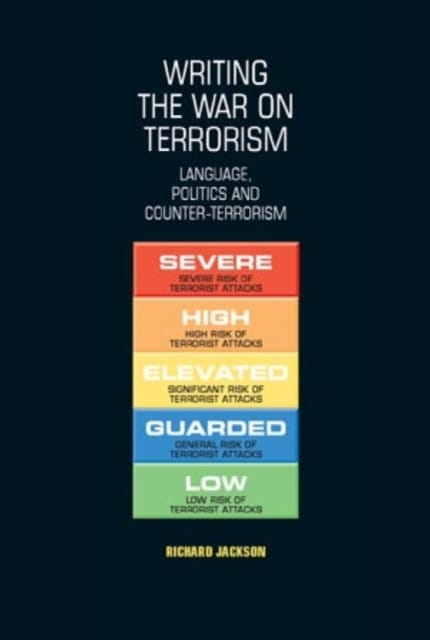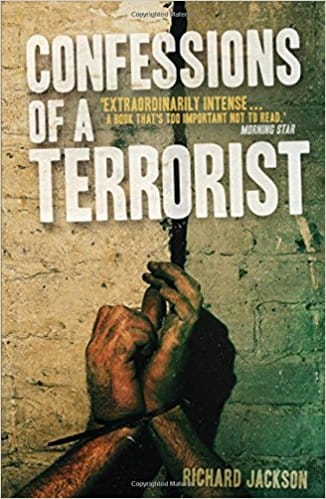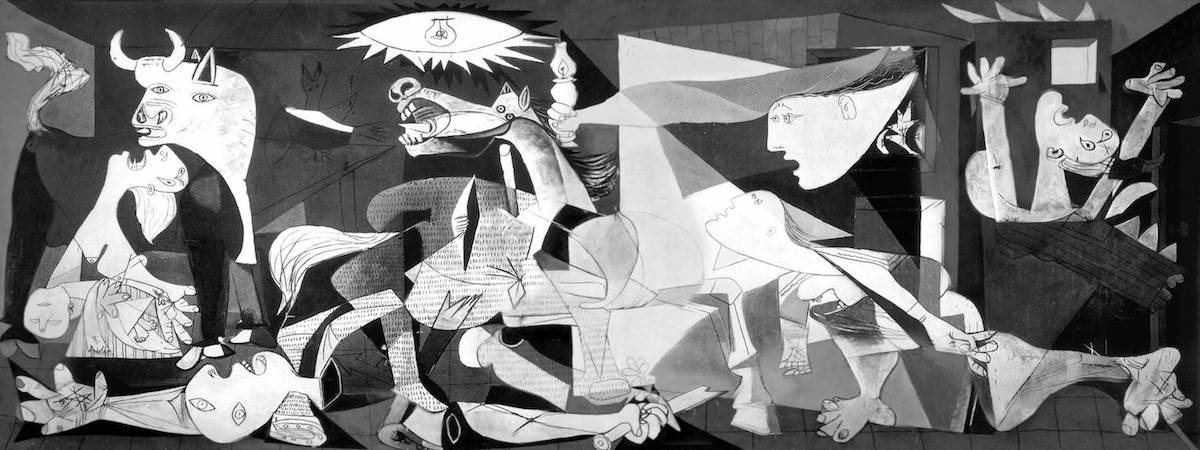"Given that the war on terror has killed and injured infinitely more people than non-state terrorism has, and that counterterrorism has harmed communities and individuals in a large number of ways, it is important that there exists a robust critique of its destructive nature and practices". Critical Terrorism Studies (CTS) was created to denounce these issues and offer a counter-narrative to the dominant, mainstream understanding of terrorism. A conversation with Dr Richard Jackson, one of the founders of CTS.
Almost fifteen years have passed since a group of academics realised that, although critical approaches to security were blooming, a specific critique on the War on Terror, and more in general on the “phenomenon of terrorism”, was needed. Frustrated with the way “terrorism” was understood and depicted and looking with horror at the human rights abuses that counter-terrorism measures were legitimizing, scholars such as Richard Jackson, Jeroen Gunning, and Marie Breen Smyth, among others, decided that a new conceptualization of this issue was needed, one that would allow them to reflect critically about so-called “(international) terrorism”. This is how “Critical Terrorism Studies” (CTS) came into existence. Supported by a series of publications like the peer-reviewed journal Critical Studies on Terrorism, a Routledge dedicated book series, and the establishment of a BISA Critical Studies on Terrorism Working Group, CTS is nowadays a strong reality.
Taking advantage of my time at the University of Otago, New Zealand, I had the opportunity to ask some questions on Critical Terrorism Studies to Dr Richard Jackson, professor of Peace Studies and deputy director at the National Centre for Peace and Conflict Studies (NCPACS). I hope his reflections will be helpful not only for scholars focusing on “terrorism”, but more in general, for all those who adopt a critical approach in their work. Here is our conversation in a Q&A format.
Alice — Thank you, professor Jackson, for accepting to answer some questions on Critical Terrorism Studies. First of all, I would like to ask you about the setting up of CTS. It is now more than a decade that CTS has been a reality and it has managed to have an impact in academia, especially in some disciplines, such as International Relations. This considered, what is your view of the evolution of CTS? Did you expect CTS to have such an effect within IR and related disciplines? Where and how do you think CTS has been especially successful and what aspects of CTS are you particularly satisfied with?
Richard Jackson — It’s my pleasure to discuss these issues with you. My assessment of the first ten years of CTS is perhaps a little more sanguine than yours, in the sense that I think CTS is still a pretty small and remote outpost on the larger plain of security and terrorism studies. The reality is that while there is some recognition that CTS exists as an academic subfield, it primarily exists as a tiny group of insurrectionary scholars who are rarely invited to the main table for discussions on contemporary security issues. Few non-CTS scholars publish in the CTS journal or attend CTS conferences or panels, and few mainstream security studies scholars cite CTS work. Certainly, when we look at the media or mainstream politics, CTS has had virtually no discernible impact. CTS scholars are rarely invited to act as ‘experts’ in mainstream media commentary, and even fewer are invited to address or advise governments on their policies or programmes – unlike many mainstream security ‘experts’ who appear regularly in the media.
However, this is not to belittle the achievements of CTS, which have nonetheless been considerable and significant. In particular, I am proud of the way CTS scholars have articulated a new approach to the study of terrorism and security which makes clear that it is rooted in a critical, emancipatory ethics and praxis, one which does not assume that states are inherently legitimate in their violence and war-making. I am also happy that CTS scholars embrace a wide variety of ontological, epistemological and methodological approaches; this has pluralised and deepened the field greatly, in my view. CTS has also done a great job of highlighting the neglected subject of state terrorism, as well as other neglected topics such as gender-based violence and intimate terrorism, among others. In this way, CTS has provided an intellectual home for a great many young and up-and-coming scholars who want to study terrorism and counterterrorism-related subjects, but who feel nervous and limited by the mainstream approach and its inherent state-centrist, national security orientation.
I am also proud of the broader body of critical literature which has deconstructed the war on terror and contemporary forms of counterterrorism. There is very little on this in the mainstream field, which tends to focus instead on understanding anti-western terrorist groups, and given that the war on terror has killed and injured infinitely more people than non-state terrorism has, and that counterterrorism has harmed communities and individuals in a large number of ways, it is important that there exists a robust critique of its destructive nature and practices. Lastly, there are some small ways in which CTS has had an impact in a broader context. Some people in the alternative new media, such as Glenn Greenwald, have referred to CTS works and taken on board its criticisms, and a few artists have also been influenced by CTS in their artwork.
A — And, on the other hand, what do you think have been or will be the main challenges for CTS? Do you think there are issues/spaces where CTS has not yet had a strong impact? Is there any constructive critique you would move to CTS?
RJ — The challenges facing CTS are the same challenges which face all critical movements in academia and society. Being marginalised and ignored is the greatest problem, as the power-knowledge structures of society prevent the voices of critical scholars and activists from being heard, much less being acted upon. But this is not surprising because CTS, like other critical movements, threatens a whole series of powerful vested interests who fight hard to protect their power and influence. For example, one area that CTS has had some academic success in is demonstrating how small the terrorist threat really is, and how much of an overreaction has taken place since 9/11. However, the counterterrorism and security industry is worth billions of dollars and involves the careers and power of millions of people and thousands of agencies, private firms and government departments. Therefore, these groups and individuals will do everything they can to ensure that the criticism of CTS is ignored and never acted upon.
Another key conundrum has been the relationship between CTS and power holders in society. In the modern university, and in society more broadly, there is a perception that real influence comes from speaking truth to power and being asked to sit at the big table of politics and government. However, CTS is avowedly outsider and non-state in its politics and ethics, and most of its work involves critiquing the state’s actions. My thinking is that maybe CTS needs to reconsider whether there is any real value in trying to speak to the state, and whether instead it ought to openly side with activists and protestors, particularly given that progressive change most often comes from the pressure generated by social movements. Particularly these days, politicians rarely enact progressive legislation on the basis of expert academic advice or their own research. Mostly, they have to be pressured into it by the public. In other words, I wonder if CTS scholars ought to be trying to build popular movements which will pressure governments to dismantle the war on terror and oppressive counterterrorism and security policies – instead of constantly seeking opportunities to engage with policy-makers.
Beyond these kind of general concerns, CTS faces the tricky challenge of critiquing the language and practices of counterterrorism, while at the same time using the language as a means of doing research and getting heard. The point is that if CTS scholars refused to talk about ‘terrorism’, and there are good reasons why it is a pretty useless and unhelpful term, they would have no way into current debates and conversations. At the same time, by using the term, they risk reifying and reinforcing it in negative and unhelpful ways. To get around this, critical scholars need to be highly reflective and only use the term in ways that destabilise and deconstruct it.
I also think that CTS has some way to go in reaching the public sphere and finding its voice in the public debate, in overcoming its Western-centrism and global North dominance, in overcoming the wider patriarchal character of security studies, and in articulating an alternative emancipatory counterterrorism alternative. What I mean here is that, to date, CTS has done a great job of critiquing and deconstructing current approaches to counterterrorism, but it has been less successful in providing an alternative set of policies which governments could enact instead.

A — Sometimes, as a critical scholar, I have the feeling we may be a bit biased. Because of the specific focus on the hegemonic discourses, I have the sensation that we run the risk of “romanticising” the other side, the violent resistance to these practices, focusing and idealising more on their “resistance” aspect than on their violent nature. For example, when studying “terrorism”, shifting so much the focus on why violence is used and what caused it in the first place more than on “what kind of” violence and “how” it is used, don’t we run the risk of “romanticise” terrorism? How to solve this? What do you think may be a good balance?
RJ — In my view, I don’t think what CTS does amounts to romanticising terrorist violence. Rather, it amounts to deconstructing the exceptionalising and essentialising discourses of violence which are socially and politically dominant at the present time. In other words, it is normal in society today to think that ‘their’ terrorist violence is somehow different and evil, while ‘our’ military and counterterrorist violence is legitimate and essentially good. CTS aims to destabilise this simplistic and deeply political dichotomy by demonstrating that terrorist and counterterrorist violence can rarely be differentiated along ethical-normative or political-strategic lines. It also attempts to deconstruct the view terrorist violence emerges out of a vacuum or from some kind of evil or psychological pathology, but rather that it is perfectly understandable in its political-historical context and intentions. This is part of the critical imperative – to destabilise taken for granted ideas about legitimate versus illegitimate violence, worthy versus unworthy victims, bad versus good killers.
I suppose it could be argued that in a society which strongly believes in a clear distinction between terrorism and just and legitimate state violence, such a viewpoint could seem like romanticisation or a bias towards the terrorists. In my own view, all violence – terrorist and counterterrorist – is deeply immoral and the antithesis of politics. It is also so deeply entangled that you cannot consider one without the other: terrorists are reacting to state violence, who then react to terrorist violence. In one respect, the terrorists are following the example of states who use violence all the time. In the end, I see the role of CTS to challenge the view that political violence can be useful for security or revolution, and that politics must be rooted in nonviolent agonistic struggle.
A — Now a couple of broader questions on issues that affect CTS but also critical approaches in general. First of all, what does it mean to be critical for you? Is there a common element of critique that critical approaches should share and prioritise?
RJ — The term critical can be used with a small ‘c’ to mean any approach that questions the status quo and taken for granted knowledge and practices. Or, it can be used in the sense of Critical Theory which comes out of a particular theoretical tradition. I use it in both senses, but lean towards the latter. This is because I think that what unites critical approaches is their shared concern for some kind of progress towards a better, more just and equal world: in other words, emancipation. This implies an open normative agenda and a recognition that objective, value-free social science is impossible. I also think critical means having a skeptical attitude which is willing to question everything about the current status quo, and question taken for granted forms of knowledge, ideas, and practices.
A — There is then the complex and very debated issue of the relation between critical approaches and policy-making spheres, especially governmental institutions. This is a topic that sometimes does not receive the attention it should, although central in what, for example, CTS does. I know that you are not a big advocate of engaging with governmental institutions, however, would not policy-making practices and processes benefit from the integration of critical voices in their sphere? How do you think critical scholars should position themselves towards these and where and how do you think they could make a difference?
RJ — As I mentioned before, I used to think that engaging with governments was important and potentially useful. I am less convinced these days because all the evidence suggests that governments tend to work primarily in the interests of the economic elite and primarily to preserve the current status quo. Moreover, in the war on terror era, governments have built up a huge counterterrorism apparatus which functions to increase their power over populations, and which is at the same time deeply harmful and oppressive. In this context, there is little value in CTS scholars advising governments because all they could honestly say to them would be to stop what they are doing and dismantle the whole counterterrorism system. Not only would governments refuse to listen to such advice, they would actively resist it because it is not in their interests. I also worry that by engaging with governments, CTS scholars risk legitimising their policies and the harms they cause. To my mind, the war on terror is deeply immoral and has been horribly destructive; I would feel very uncomfortable legitimising any part of it.
In this context, I believe that CTS needs to ally itself with protesters and activists who are openly working to end torture, end war and military interventions, end arms sales, abolish oppressive counterterrorism laws, protect human rights, stop drone killings, and the like. Working with such groups probably has a better chance of making a positive difference, and it avoids the dangers of cooption and legitimising state policies.

A — One last question on future endeavours: considering their strong emancipatory aim, how do you think CTS, and critical approaches in general, might become more “popular” and help to shape non-academic (popular) understandings of their object of study? How do you think that they could start making a difference in fields that are not only academia or policy related?
RJ — This is a particularly important question and one which I continue to struggle with. I think it’s important that CTS scholars and scholarship gets into the public debate and into public consciousness. For this to happen, CTS scholars need to make greater efforts to get into the media, particularly the alternative media where there is greater openness to alternative viewpoints. They also need to write for a non-academic audience and put their work into non-academic spaces and forums where the public can access it – rather than always behind the paywall of academic journals where articles are written in obscure jargon that non-specialists cannot understand anyway. And, as I said, I’d like to see CTS scholars working with activists and protesters, getting involved in creative campaigns of consciousness raising or political pressure.
Lastly, I think that CTS scholars need to try harder to work with artists, writers, film makers and the like to engage with popular culture, which is where a great many citizens get their information about politics from. I’d like to see films, tv shows, graphic novels, and literature that adopts a CTS approach to give alternative views on the nature and causes of terrorism. Such avenues would reach a wider audience and might have a greater chance of impacting on public debates. This was the reason I wrote my own novel called Confessions of a Terrorist (Zed, 2014)– to reach a wider audience than I was reaching through my academic writings. Sadly, I am the only CTS I know who has attempted anything of this nature to date. The point is that in order to have a greater, emancipatory impact, CTS will need to break free of its small little academic ghetto and get into the public square.
A — Thank you very much, Professor Jackson, for your time. I am confident CTS will continue broadening its scope and become an even stronger reality, not only in academia.
Acknowledgements
Cover image: Guernica, mural-sized oil painting on canvas by Pablo Picasso completed in June 1937 in response to the bombing of Guernika, Spain, on the 26th of April 1937, by Nazi German and Fascist Italians warplanes at the request of Spanish Nationalists. An act of war or an act of terror?
